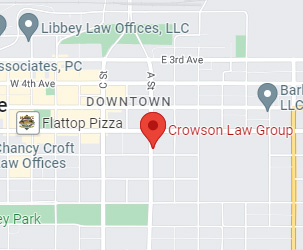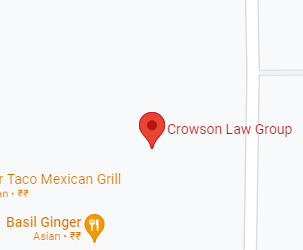Parent-Teen Driving Contracts Protect Against Alaska Car Accidents

Teen drivers are a high-risk group when it comes to car accidents, especially in the first few months of driving. In Alaska, with its challenging weather and road conditions, the risks are even greater. Parent-teen driving contracts can be an effective tool for reducing those risks, promoting safe driving habits, and potentially preventing devastating consequences like Anchorage car accident cases.
Parent-Teen Driving Agreement
A parent-teen driving agreement is a formal contract between a teen driver and their parents or guardians. It outlines specific driving rules, expectations, and consequences for breaking those rules.
A well-crafted agreement should cover the following:
Graduated Licensing Restrictions
Reinforce Alaska’s graduated driver licensing (GDL) laws, including limits on nighttime driving, passenger restrictions, and cell phone use.
Explain the reasoning behind these restrictions, highlighting how they help new drivers gain experience in stages.
Driving Curfews
Establish clear driving curfews, especially for new drivers. Studies show that late-night driving is particularly risky for teens due to fatigue and increased likelihood of encountering other impaired drivers.
Zero Tolerance for Alcohol and Drugs
Emphasize a strict no-tolerance policy for driving under the influence of any substance. Underscore the severe legal and safety consequences, as well as the potential devastating impact on their own or others’ lives.
Seat Belt Usage
Mandate seat belt use for the driver and all passengers at all times. Cite statistics on how seat belts dramatically reduce the risk of death and serious injury in crashes.
Distracted Driving
Prohibit cell phone use (even hands-free) and other distractions like eating, adjusting the radio, or applying makeup. Explain how even seemingly minor distractions significantly impair a driver’s reaction time and judgment.
Consequences
Outline clear and consistent with Anchorage car accident cases for violating the agreement, such as restricting driving privileges, loss of cell phone use, or revoking driving privileges entirely. Consistency in enforcing these consequences is crucial.
Advise Your Teen on What to Do After an Accident
Even with careful planning and a driving contract in place, accidents can still happen. It’s critical to prepare your teen with instructions on how to handle the aftermath of a car accident.
Stay Calm and Ensure Safety
The first priority is safety. Instruct your teen to stop the car, turn on hazard lights, and move to a safe location away from traffic if possible. They should check themselves and any passengers for injuries and call 911 immediately if anyone requires medical attention.
Do Not Admit Fault
Advise your teen to avoid admitting fault at the scene, even if they feel they made a mistake. It’s natural to feel apologetic, but statements like “I’m sorry, I didn’t see you” can be used against them later. They should simply exchange information and let insurance companies and legal representatives (if necessary) determine fault.
Gather Information
Here’s the information they should collect:
- Names, addresses, phone numbers, driver’s license numbers, and insurance information of all drivers and passengers involved.
- Vehicle descriptions (make, model, year, color, license plate numbers).
- Location of the accident (including street names, intersections, and nearby landmarks).
- Names and contact information of any witnesses.
- Photos of the scene, including damage to all vehicles, skid marks, traffic signs, and any other relevant details.
- Name and badge number of the responding police officer(s).
Contact the Police
Report the accident to the police, especially if there are injuries, significant property damage, or any suspicion of impaired driving. Obtain a copy of the police report, as it will be vital for insurance claims.
Notify You and Your Insurance Company
Your teen should immediately contact you and their insurance company to report the accident. Follow your insurance company’s instructions for filing a claim and be prepared to provide details about the accident.
Teen driving can be a nerve-wracking time for parents. However, taking proactive steps like creating a parent-teen driving contract, discussing post-accident procedures, and addressing the emotional impact of accidents can make a significant difference. Open communication and ongoing guidance are key to navigating the journey of teen driving.
Featured Image Source : https://unsplash.com/photos/a-woman-sitting-in-a-car-with-a-steering-wheel-4STq2B24S1k


